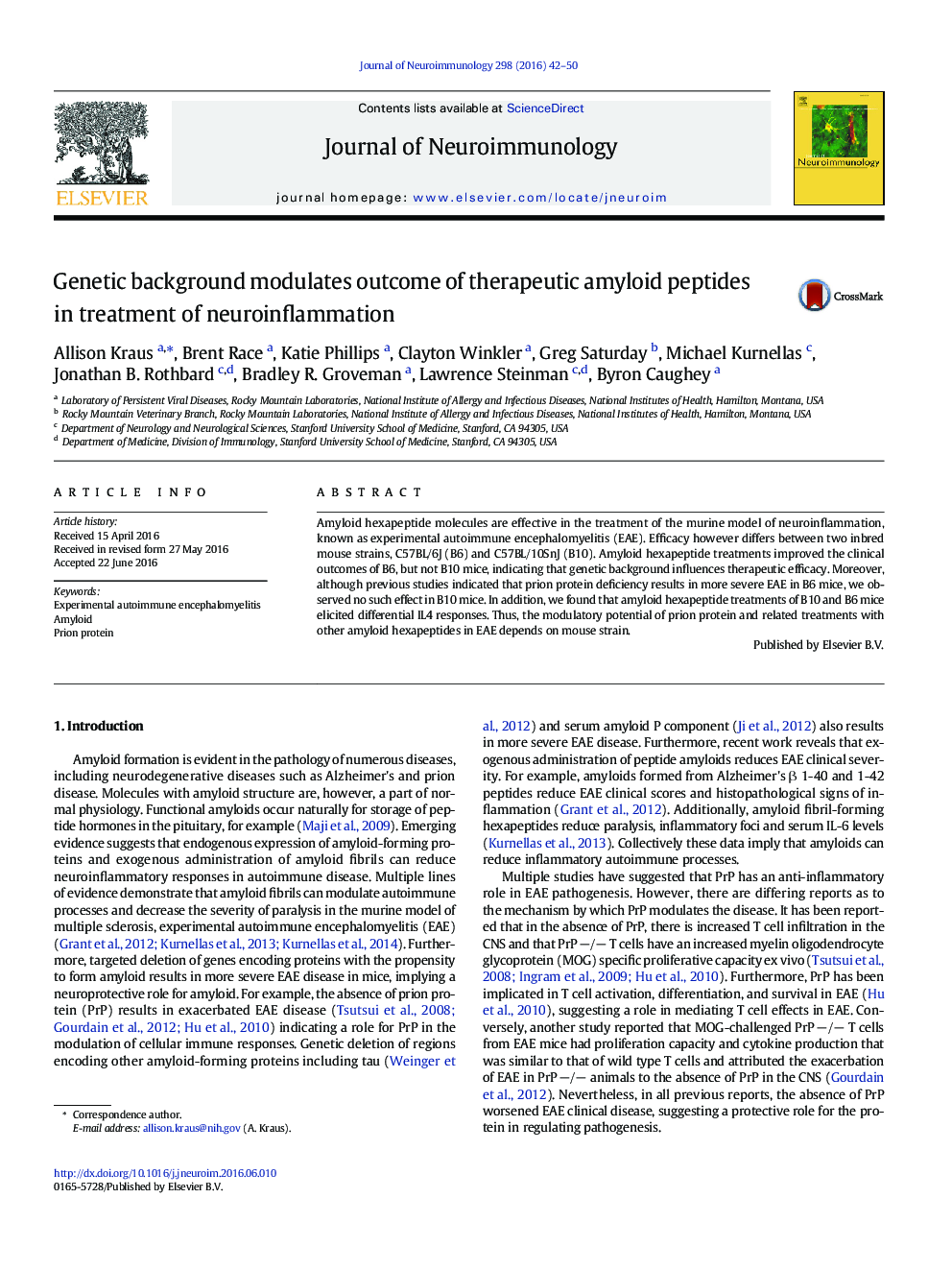| Article ID | Journal | Published Year | Pages | File Type |
|---|---|---|---|---|
| 3063811 | Journal of Neuroimmunology | 2016 | 9 Pages |
•Genetic background influences efficacy of amyloid hexapeptide treatments.•Prion protein deficiency does not influence EAE in mice with a C57BL/10 background.•Amyloid hexapeptide treatments elicit mouse strain dependent IL4 responses.
Amyloid hexapeptide molecules are effective in the treatment of the murine model of neuroinflammation, known as experimental autoimmune encephalomyelitis (EAE). Efficacy however differs between two inbred mouse strains, C57BL/6J (B6) and C57BL/10SnJ (B10). Amyloid hexapeptide treatments improved the clinical outcomes of B6, but not B10 mice, indicating that genetic background influences therapeutic efficacy. Moreover, although previous studies indicated that prion protein deficiency results in more severe EAE in B6 mice, we observed no such effect in B10 mice. In addition, we found that amyloid hexapeptide treatments of B10 and B6 mice elicited differential IL4 responses. Thus, the modulatory potential of prion protein and related treatments with other amyloid hexapeptides in EAE depends on mouse strain.
